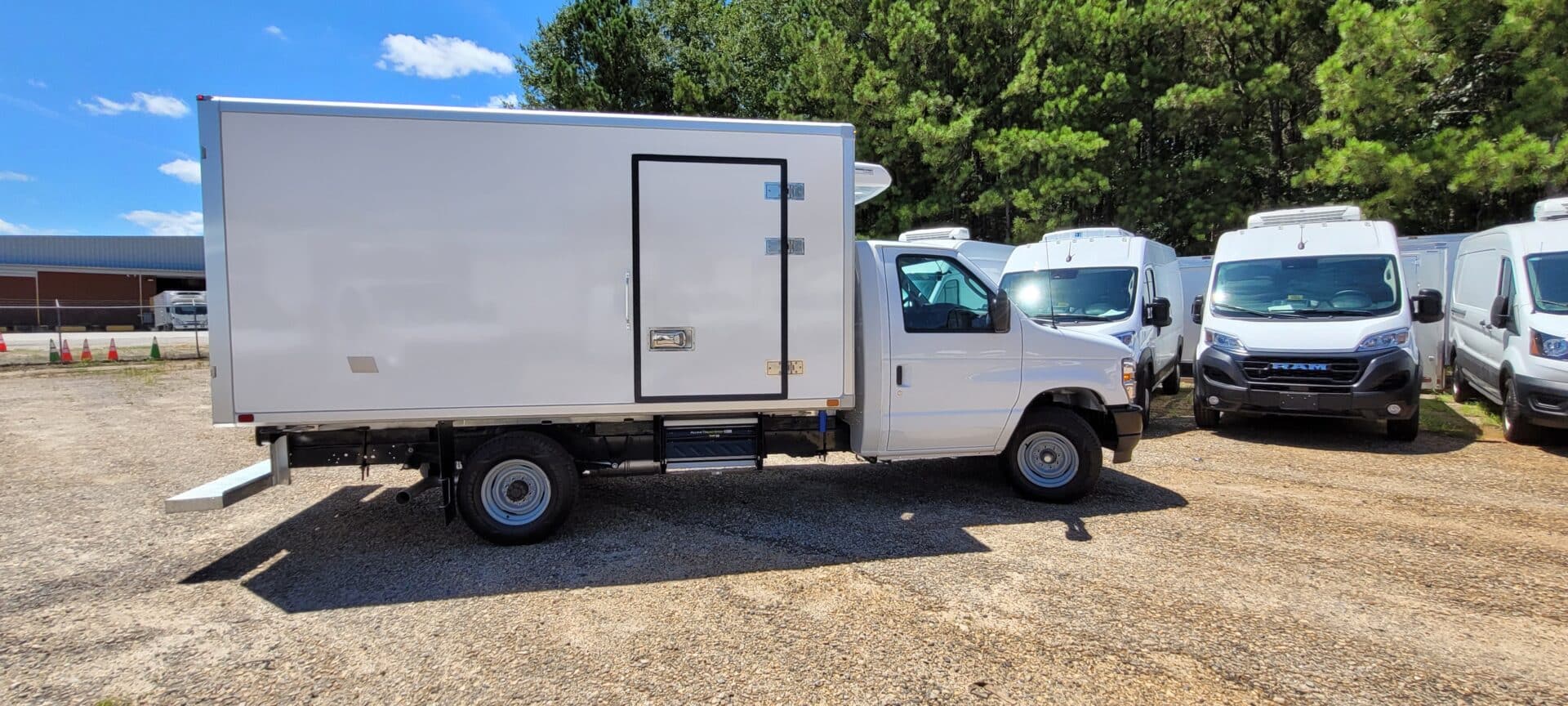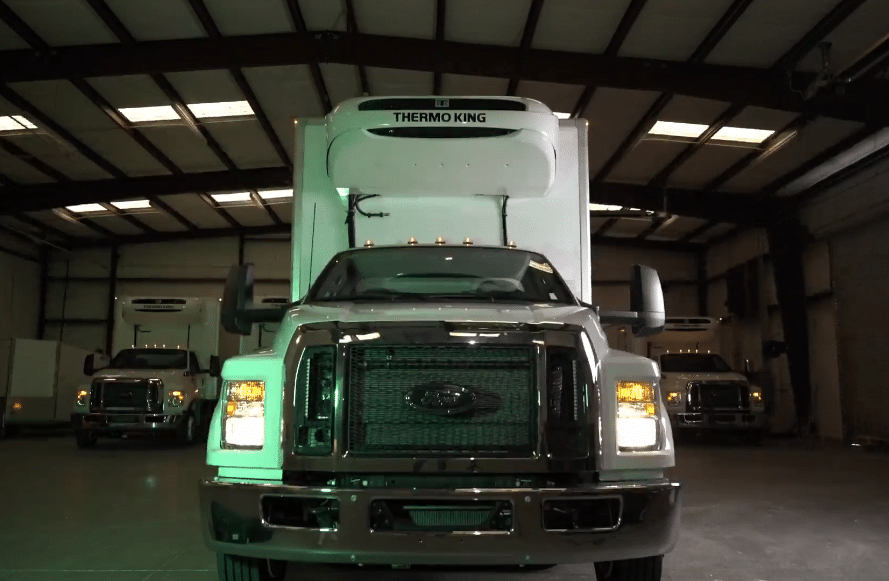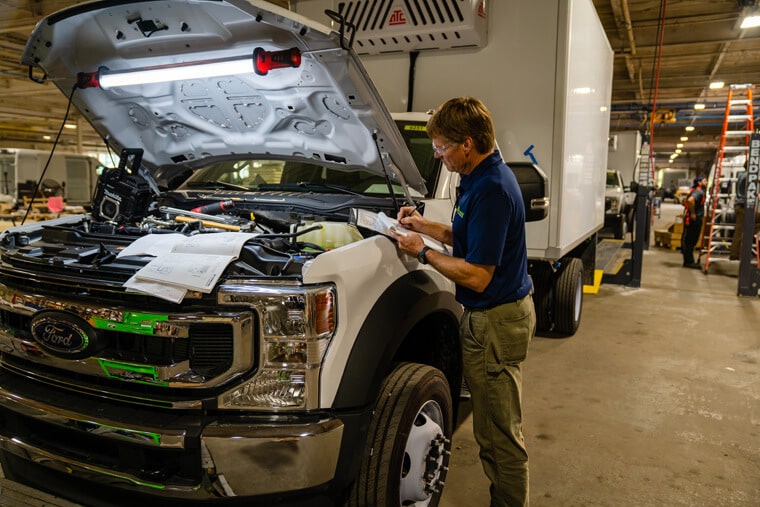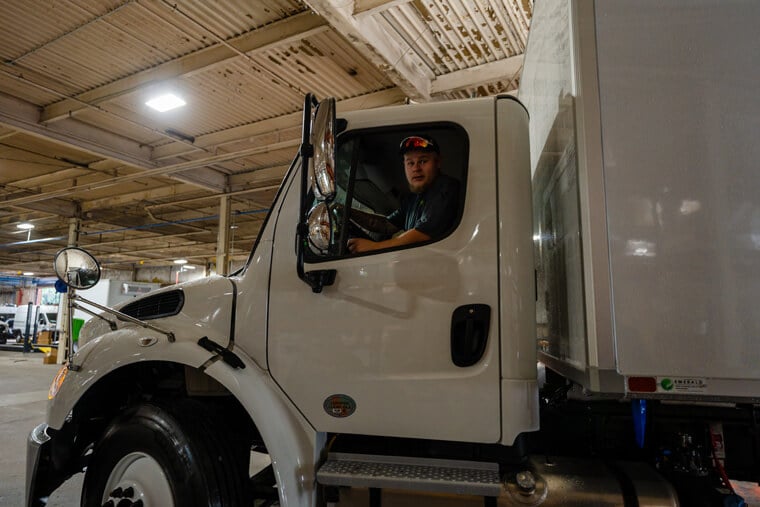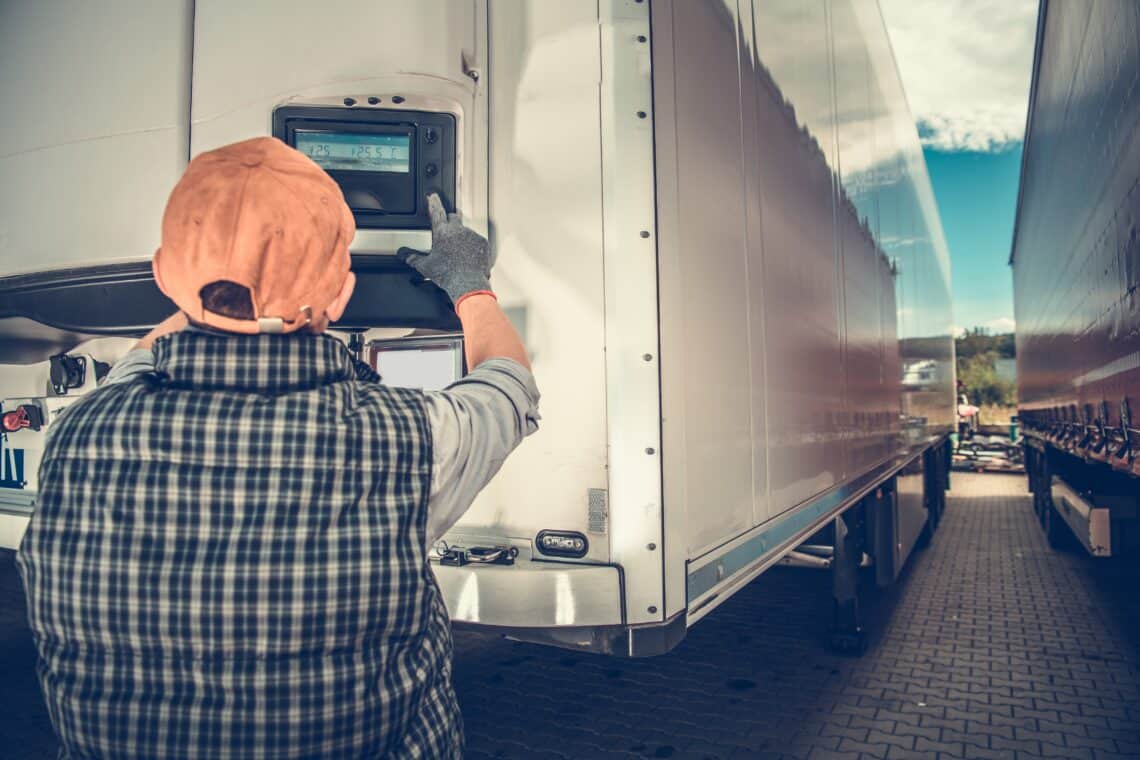
What are the different types of refrigerated vans?
Joe Dickman | July 8th, 2022
Not all refrigerated vans are built the same. Sure, they all serve the purpose of keeping food products and pharmaceuticals cold during transportation, but some vans differ from others in how they function to keep items cold. What should you look for when considering freezer vans for sale?
Essentially, there are four different types of refrigerated vans: insulation only, chiller conversion, semi-freezer, and full-freezer. The type you need for your business may depend on what specific items you transport and the duration required to ship those items.
Insulation-only vans
This type of van suits companies that typically don’t transport perishable food products, but instead move other products that need to be chilled, such as flowers. Insulation-only vans do not have a refrigeration unit. The storage area is lined with a 50-mm thick Styrofoam or polystyrene insulation that blocks and isolates any heat trying to make its way inside.
Chiller-conversion vans
Like insulation-only vans, a chiller-conversion van also has a 50-mm thick coating of Styrofoam for insulation, but it also contains a refrigeration unit capable of lowering temperatures to zero degrees Celsius. This van is ideal for businesses who transport chilled meat, dairy products, or drugs that need to be kept at lower temperatures.
Semi-freezer chiller van
Another type of insulated van, the semi-freezer chiller van has a 75-mm thick lining of insulation in the storage area and can reach temperatures as low as -15 degrees Celsius. This allows businesses to deliver frozen products to distributors. It also has the capability to defrost the frozen items very quickly because of a built-in reverse cycle defrost, making this type of van more cost effective.
Full-freezer van
This van includes insulation that ranges from 75 mm to 100 mm and also has a defrosting system — either reverse cycle or hot gas. With reinforced and heat-resistant side and rear doors and sidewalls, it can keep temperatures as low as -20 degrees Celsius. Some of these vans can be customized to reach temperatures as low as -25 degrees Celsius.
The three most important things to keep in mind when choosing a van that’s right for your business are temperature, fuel efficiency and body size. If you have a pharmaceutical company, we recommend a chiller-conversion van. While an insulation-only van will meet their needs for most of the drugs they transport, a few of their drugs, such as tranquilizers, may need to be stored at colder temperatures that a chiller-conversion van will provide.
Vans with larger cooling systems will detract more from the vehicles gas mileage, so we recommend that companies in need of a semi-freezer or full-freezer van should take that extra cost into account. Buying a larger truck means being able to store and ship greater quantities, which means less trips, offsetting the cost of fuel inefficiency.
Emerald Transportation Solutions has refrigerated vans for sale in all sizes. Give us a call today so we can help you find the refrigerated cargo van that’s the perfect fit for your business.
Related Articles
Contact Us
Feel Free To Contact Us If You Have Any Questions
What does under DOT mean?
Questions regarding DOT requirements come up often. 10,000 lbs GVW (gross vehicle weight) and over are commercial vehicles that fall under the Department of Transportation regulatory requirements.
What is the difference between GVW and payload?
GVW or Gross Vehicle Weight is the entire weight of the vehicle including the payload. The payload weight represents the amount of cargo you are hauling.
What is a self-powered unit and a vehicle-powered unit?
A self-powered unit has its own fuel source and will run independent of the truck. This is the heaviest and most expensive option. While vehicle-powered units run off the engine via a compressor mounted on the engine. These are less expensive and lighter in weight but you must run the truck or plug the electric standby into shore power.
What does K-factor mean and why is that important?
K-factor is a term that stands for the overall insulating value of the container (truck body). Quite simply the lower the K-factor the better the truck body will be able to maintain a given temperature and require less energy to do so.
How much lighter is a Poly Van vs a US spec body?
Poly Van bodies are very light. On average we estimate we are 75-150 lbs per foot lighter than a traditional sheet and post foamed in place body. These weight savings translates to less fuel burn and less CO2 emissions, along with added payload, the most important benefit.
